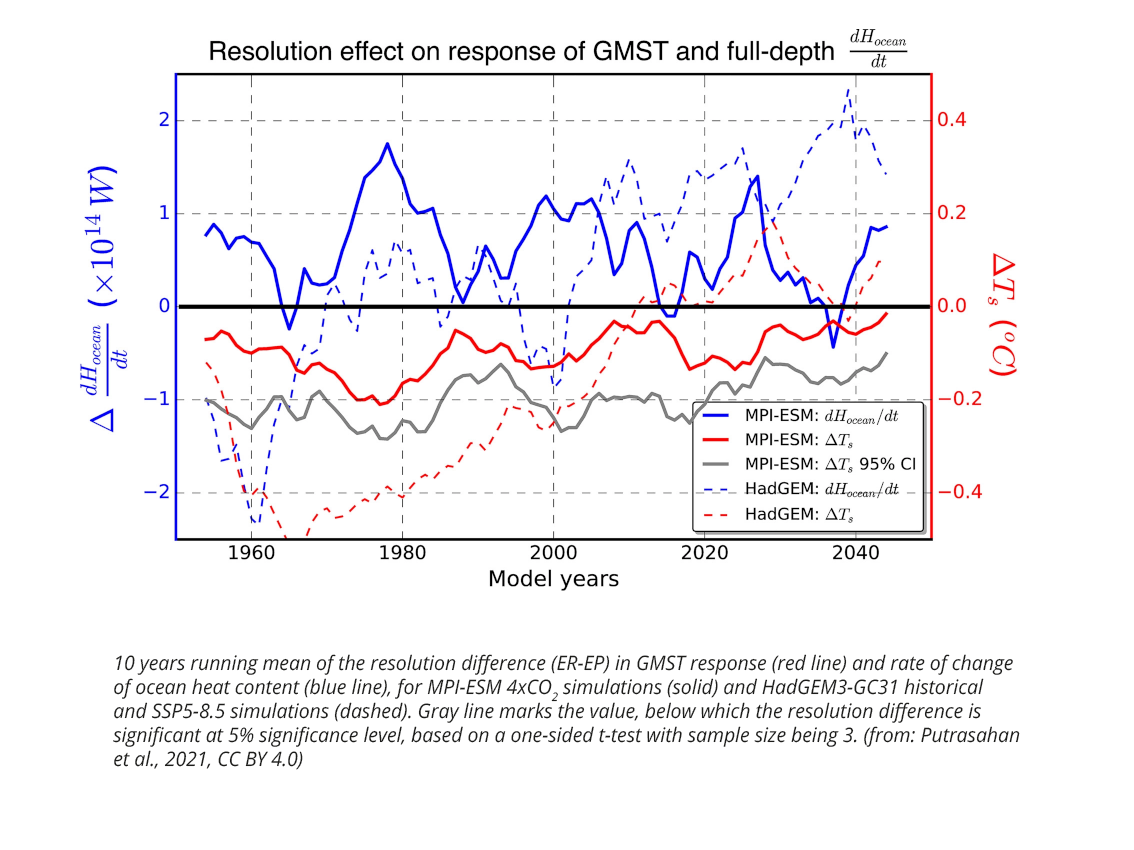Abrupt CO2 quadrupling: Resolving ocean eddies leads to smaller increase in global mean surface temperature
The efficiency of ocean heat uptake plays a role on the magnitude of the GMST response to a severe increase in CO2 forcing. This efficiency in heat uptake can in turn be affected by oceanic mesoscale eddies. Employing the Max Planck Institute Earth System Model (MPI-ESM1.2), the authors run pairs of climate change experiments that use the same atmosphere resolution but differing ocean resolutions to quantify the effect of resolved mesoscale eddies. They design the experiments to specifically (i) remove possible climate drifts in simulations that uses an eddy-resolving ocean component, and (ii) enhance the signal-to-noise ratio by using a small ensemble and applying a strong forcing, i.e., 4xCO2.

While the difference in GMST response is small between the configurations that do or do not resolve ocean eddies, it is energetically consistent with changes to the entire climate system’s energy budget resulting from enhanced ocean resolution. The deep ocean heat uptake occurs as a fast response and persists over the entire 100 years of integration. In the presence of eddies, all heat processes—which include mean and eddy heat advection as well as all diffusive processes—have a larger magnitude of response to an abrupt quadrupling of CO2 concentration. This leads to a larger rate of heat absorption by the deep eddying ocean. The results suggest that when studying the effect of resolved eddies on transient climate response and ocean heat uptake, one should not only consider the upper ocean but rather diagnose the heat uptake of the entire ocean.
Original publication:
Putrasahan, D. A., Gutjahr, O., Haak, H., Jungclaus, J. H., Lohmann, K., Roberts, M. J., von Storch, J.-S. (2021) Effect of resolving ocean eddies on the transient response of global mean surface temperature to abrupt 4xCO2 forcing. Geophysical Research Letters, https://doi.org/10.1029/2020GL092049.
Contact:
Dr. Dian Putrasahan
Max Planck Institute for Meteorology
Phone: +49 (0) 40 41173 468
E-Mail: dian.putrasahan@mpimet.mpg.de
